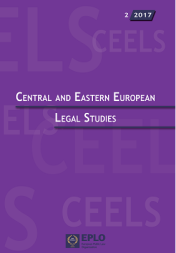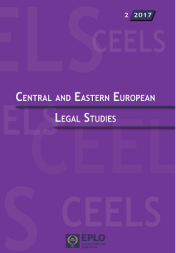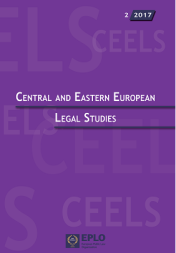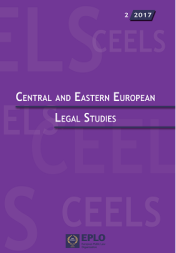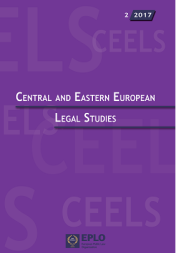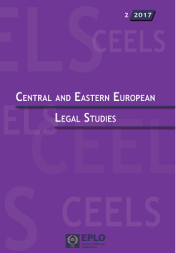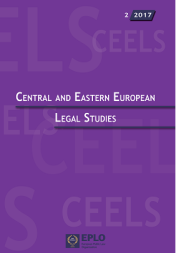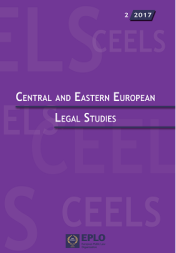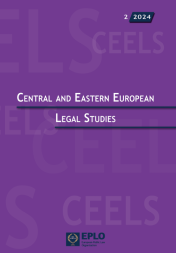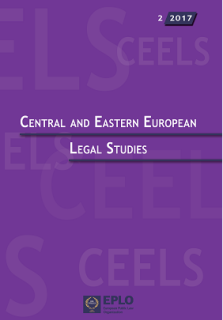
CENTRAL AND EASTERN EUROPEAN LEGAL STUDIES 2/2017
Eight articles on law developments in Albania, Bosnia and Herzegovina, Croatia, Lithuania, Poland, Russia and Slovakia are included in the second issue of the year 2017 of the Central and Eastern European Legal Studies.
The first article briefly analyzes the first-instance judgment in the Radovan Karadžić case by the International Tribunal for the former Yugoslavia, its impact and possible consequences on the public opinion, ethnically confronted policies as well as on the possible redesigning of the constitutional structure of Bosnia and Herzegovina. The following article aims to examine the constitutional context of the rule of the official language which is not limited to Art. 27 of the Polish Constitution but to other articles as well. The author argues that there are reasons for the legal protection of the language and analyzes the measures of a statutory law applied to protect the language. The third article is produced in the framework of the process of drafting a “Croatian Administrative Procedure Law” and sets Guidelines for Better Legislation in Croatia which cover the main steps of legislation in the Regulatory Cycle. The next article, coming from Slovakia, discusses questions of expressed wishes of a patient and the possibilities to refuse treatment before such circumstances for its provisions arise; more in particular it considers the institute of waiver in Slovakia. In the fifth article the author examines the issue of media ownership in Albania, which is regulated by Law 97/2013 “On the Audiovisual Media in the Republic of Albania”. However, the legal debate on media ownership in the Albanian audiovisual market has been reopened with the Constitutional Court’s decision 56/2017. The following article analyzes the electoral system in Bosnia and Herzegovina during the Austro-Hungarian rule. The legal aspects of public expenditure and the problems of its rationalization in the Republic of Lithuania are dealt with in the next article. In the final article of this issue, are discussed the status quo and possible future development of the relationship between the ECtHR and Russia’s Constitutional Court, which share a history of conflicting decisions and divergent approaches to the interpretation and application of rules of law.
Summary
M. Bartoszewicz, The Polish Language and Law [IN ENGLISH]
U. Karpen, Instructions for Law Drafting [IN CROATIAN]
A. Erdősová, Living Will as the Fundamental Right of the Patient in Slovakia [IN ENGLISH]
E. Bushati, Audiovisual media ownership in Albania. Decision no. 56/2016 of the Constitutional Court [IN ALBANIAN]
S. Savić, Das Wahlsystem in Bosnien und Herzegowina in der Zeit der österreichisch-ungarischen Herrschaft [IN GERMAN]
B. Sudavičius, Public Expenditure and its Rationalization: Legal Regulation in the Republic of Lithuania [IN LITHUANIAN]
E. R. Gadelshina, Weighing ECtHR Decisions against National Constitution: Russian Experience [IN ENGLISH]















